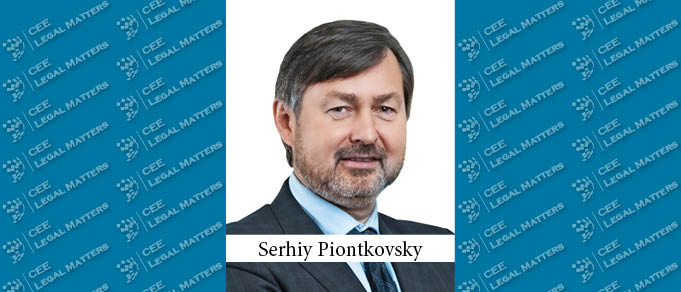The conflict in the east of the country that began in 2014 is not the only thing plaguing Ukraine. After the fall of the pro-Russian regime in the wake of the Euromaidan revolution, the independent National Anti-Corruption Bureau of Ukraine was established to tackle the issue of corruption in the country.
Nonetheless, Serhiy Piontkovsky, Partner at Baker McKenzie in Kyiv, reports that, “there was recently a big setback in our fight against corruption. About a month ago the Constitutional Court of Ukraine decided that the appointment of the Chairman of the National Anti-Corruption Bureau was unconstitutional. The chairman was appointed by decree of the previous president, Petro Poroshenko. Since there is no explicit provision in our constitution granting the president such a prerogative, the court concluded that the president had acted without authority in this matter.” According to Piontkovsky, “this decision represents a huge blow to the anti-corruption authorities in Ukraine.”
The instability of the Anti-Corruption Bureau was also noticed by the International Monetary Fund, as, according to Piontkovsky, “one of the major elements of Ukraine’s agreement with the fund is the reform of our anti-corruption sector.” Thus, he says, “because of the Constitutional Court’s decision, the whole arrangement with the IMF is at stake. It is unclear at this moment if the fund will continue to provide financing for our country.”
In other areas, Ukraine’s political system seems to be functioning well, and, Piontkovsky says, “in a month or so, we will have municipal elections throughout Ukraine.” Unsurprisingly, he says, “the political campaign is well underway.”
On the topic of legislation, Piontkovsky says that, “there are several important updates worth mentioning. First of all, anti-BEPS measures will be added to the Tax Code of Ukraine. In the future, every Ukrainian individual or legal entity which owns a Controlled Foreign Company will be required to declare its income. Should the annual turnover of said company exceed EUR 2 million, the owner in Ukraine will have to pay 18% Personal Income Tax and 1.5% military tax, even when no dividends were paid out.” According to him, “in order to facilitate this process, Ukraine has committed to join the Common Reporting Standard for Automatic Exchange of Information by the end of the year.”
“Another new part of our tax system under development is the Tax Amnesty Law, which is still in a draft version,” Piontkovsky says. “If the law gets passed, individuals doing business in the grey economy would be pardoned for tax offenses and would henceforth have to pay between 2.5-10% Personal Income Tax.” He’s aware this may not succeed, of course. “Historically speaking,” he says, “out of all countries which passed tax amnesty laws, only a few have been successful. There was some debate over the prudence of implementing such a law in our country, but people mostly perceive it as a positive thing.”
“Second, important changes were made concerning the regulation of farmland ownership,” he continues. “The parliament recently lifted the ban on sale of agricultural land after more than twenty years. From July 2021, companies and individuals from Ukraine will be able to start acquiring land, but only up to 10,000 hectares.” He counts himself among the supporters of the new rule. “I believe this is a very good thing, since it will help develop agriculture business and attract domestic investments in the sector.” Even under this new rule, he says, “foreigners will still be banned from buying land in Ukraine.”
Recent legislative changes are aimed at bringing money into and keeping more in Ukraine, and Piontkovsky points, as interesting example, to the new Law on Gambling Business. “Back in 2009,” he says, “the Ukrainian government banned all gambling in Ukraine, which simply went underground. The new law is designed to legalize and strictly regulate the industry.” As a result, he says, “casinos will only be allowed in 5-star hotels, and gambling licenses – which will cost USD 10 million for a 5-year period – will be quite expensive.” Nonetheless, he says, “despite the restrictions, a number of foreign companies, including the Shangri-La Group, are eager to invest in the sector.”
Despite the COVID-19 crisis, there are still some major deals in the pipeline. “The main two types of deals right now are concessions and privatizations,” Piontkovsky says. “The most important concession deals pertain to two port terminals – one in Mykolaiv and the other on the Black Sea. In addition, the state is in the process of privatizing several state-owned hotels and chemical and mining companies, as well as distilleries.”
